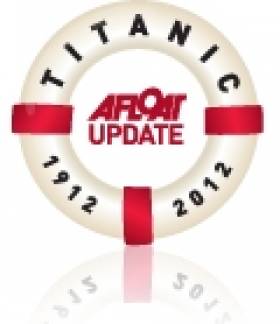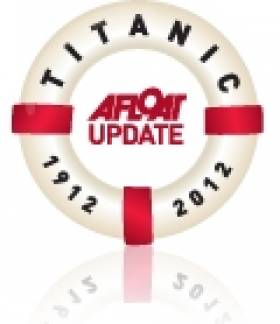Displaying items by tag: Old Dublin Society
Lecture: Rothsay Castle Shipwreck 1831 -The Rathmines Connection
#Lecture&AGM - The Rothsay Castle Shipwreck, 1831: the Rathmines Connection is the next Old Dublin Society lecture which takes places on Wednesday, November 26th.
The lecture presented by Séamas Ó Maitiú will be held in the Dublin City Library & Archive, 138 - 144 Pearse Street, Dublin, at 6.30pm. All are welcome-admission free.
Following the lecture, the Annual General Meeting of the ODS is to take place.
For more about the OLD visit: www.olddublinsociety.ie
Lecture: "The Loss of the MV Princess Victoria in January 1953”
#Lecture –The Old Dublin Society's next Spring lecture is "The Loss of the MV Princess Victoria in January 1953"
The lecture is to be presented by James Scannell and held next Wednesday 20th March, starting at 18.30hrs.
Venue is the Conference Room of the Dublin City Library and Archive, 138-144 Pearse Street, Dublin 2. All are welcome – no admission fee.
For further details about the society visit: www.olddublinsociety.ie and the library lecture click HERE.
Lecture: History of HM Coastguard Service in Britain and Ireland
#LectureCoastguards – The Old Dublin Society's next Spring lecture is "History of HM Coastguard Service in Britain and Ireland" presented by John Holohan, next Wednesday, 13 February.
The lecture starting at 18.30hrs, is to be held in the Conference Room of the Dublin City Library and Archive, 138-144 Pearse Street, Dublin 2. All are welcome – no admission fee.
For further details about the society visit: www.olddublinsociety.ie/ and the library lecture click HERE.
Lecture ‘Fr Brown: From Titanic to Kangaroobie’
#LECTURE – The Old Dublin Society and the RDS are joint organisers of the lecture 'Fr Brown: From Titanic to Kangaroobie' which is to be held at the Ballsbridge venue in Dublin next Wednesday (11th April).
David Davison will be the guest speaker for the lecture that starts at 6pm in the Minerva Suite. Those intending to visit should book by calling (01) 2407 254 or email: [email protected]
The Old Dublin Society which hosts a winter and spring lecture programme is normally hosted in the Dublin City Library and Archive on Pearse Street.
For further information on all lectures visit: www.olddublinsociety.ie
Lecture: R.M.S. Titanic-The True Story
#LECTURES- The Old Dublin Society is to host a lecture 'R.M.S. Titanic – The True Story' which is to be presented by Ed Coghlan next Wednesday (14th March) in Dublin City Library on Pearse Street.
The lecture starts at 6.30pm and will be held in the libraries Archive Conference Room. All are welcome to attend the lecture which is admission free. For further information about the society visit www.olddublinsociety.ie/ in addition the library by clicking HERE.
Fashion Extravaganza Evening and Lecture Maritime Morning
10 a.m. 'Dublin Port – Past and Present'– Niall Dardis
11 a.m. 'The Blood Red Badge: Dublin Dockers, Seamen and their Unionisation' – Francis Devine
12 Noon 'Liffey Ships' – Pat Sweeney
All are welcome to attend the lecture morning, noting the nearest DART station to the venue is at Pearse Street. For further information about other events, activities and developments of the M.I.I. visit www.mariner.ie

































































